
by Gideon Marcus
To the Stars
Venus has gotten a lot of attention from Earth's superpowers. Part of it is its tremendous similarity to our home in some ways: similar mass, similar composition, similar distance from the Sun (as such things go). But the biggest reason why so many probes have been dispatched to the Solar System's second world (to wit: Mariner 2, Mariner 5, Venera 1, Veneras 2 and 3, and Venera 4) is because it's the closest planet to Earth. Every 19 months, Earth and Venus are aligned such that a minimum of rocket is required to send a maximum of scientific payload toward the Planet of Love. Since 1961, every opportunity has seen missions launched from at least one side of the Pole.
This year's was no exception: on January 5 and 10, the USSR launched Venera (Venus) 5 and 6 toward the second planet, and this month (the 16th and the 18th), they arrived.
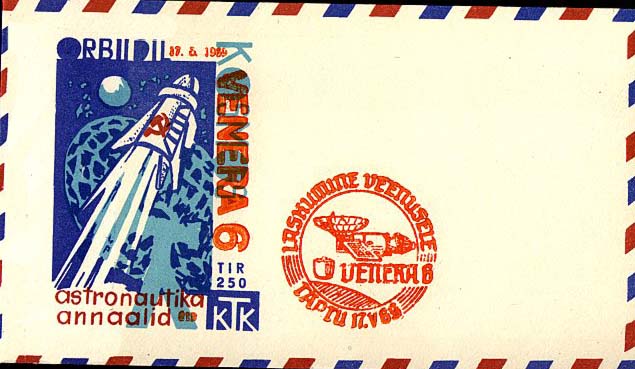
Our conception of Venus has changed radically since spaceships started probing the world. Just read our article on the planet, written back in 1959, before the world had been analyzed with radar and close-up instruments. Now we know that the planet's surface is the hottest place in the Solar System outside the Sun: perhaps 980 degrees Fahrenheit! The largely carbon dioxide and nitrogen atmosphere crushes the ground at up to 100 atmospheres of pressure. The planet rotates very slowly backward, but there is virtually no difference between temperatures on the day and night sides due to the thick atmosphere. There is no appreciable magnetic field (probably because the planet spins so slowly) so no equivalent to our Van Allen Belts or aurorae.
This is all information returned from outside the Venusian atmosphere. Inference. To get the full dope, one has to plunge through the air. Venera 4 did that, returning lower temperatures and air pressures. This was curious, but it makes sense if you don't believe the Soviet claim that the probe's instruments worked all the way to the ground—a dubious assertion given the incredibly hostile environment. No, Venera 4 probably stopped working long before it touched down.
The same may be true of Veneras 5 and 6. TASS has not released data yet, but while the two probes were successfully delivered onto Venus' surface, we have no way of knowing that they returned telemetry all the way down. Indeed, the Soviet reports are rather terse and highlight the delivery of medals and a portrait of Lenin to Venus, eschewing any mention of soft landing. The news does spend a lot of time talking about solar wind measurements on the way to Venus—useful information, to be sure, but beside the point.
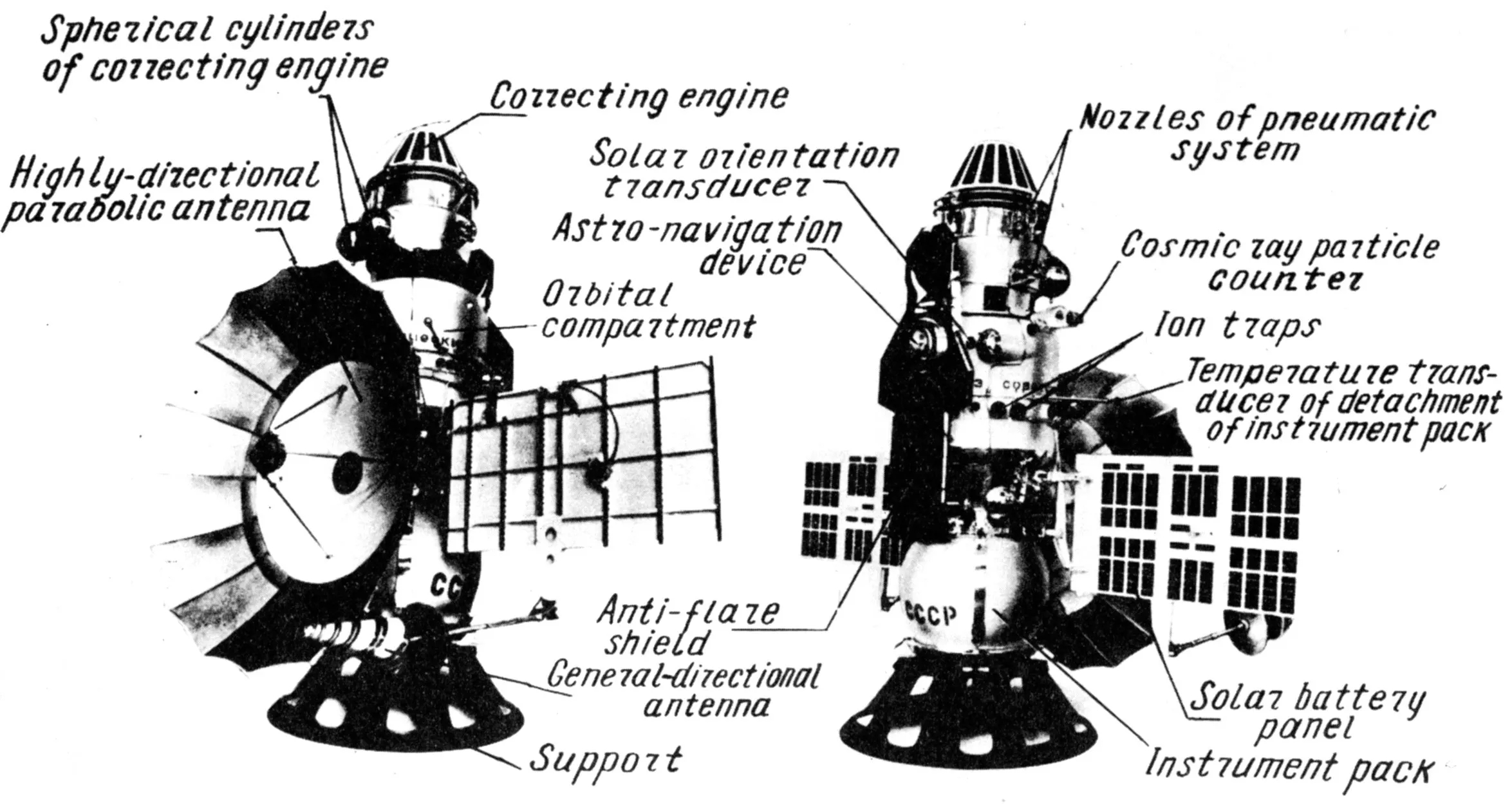
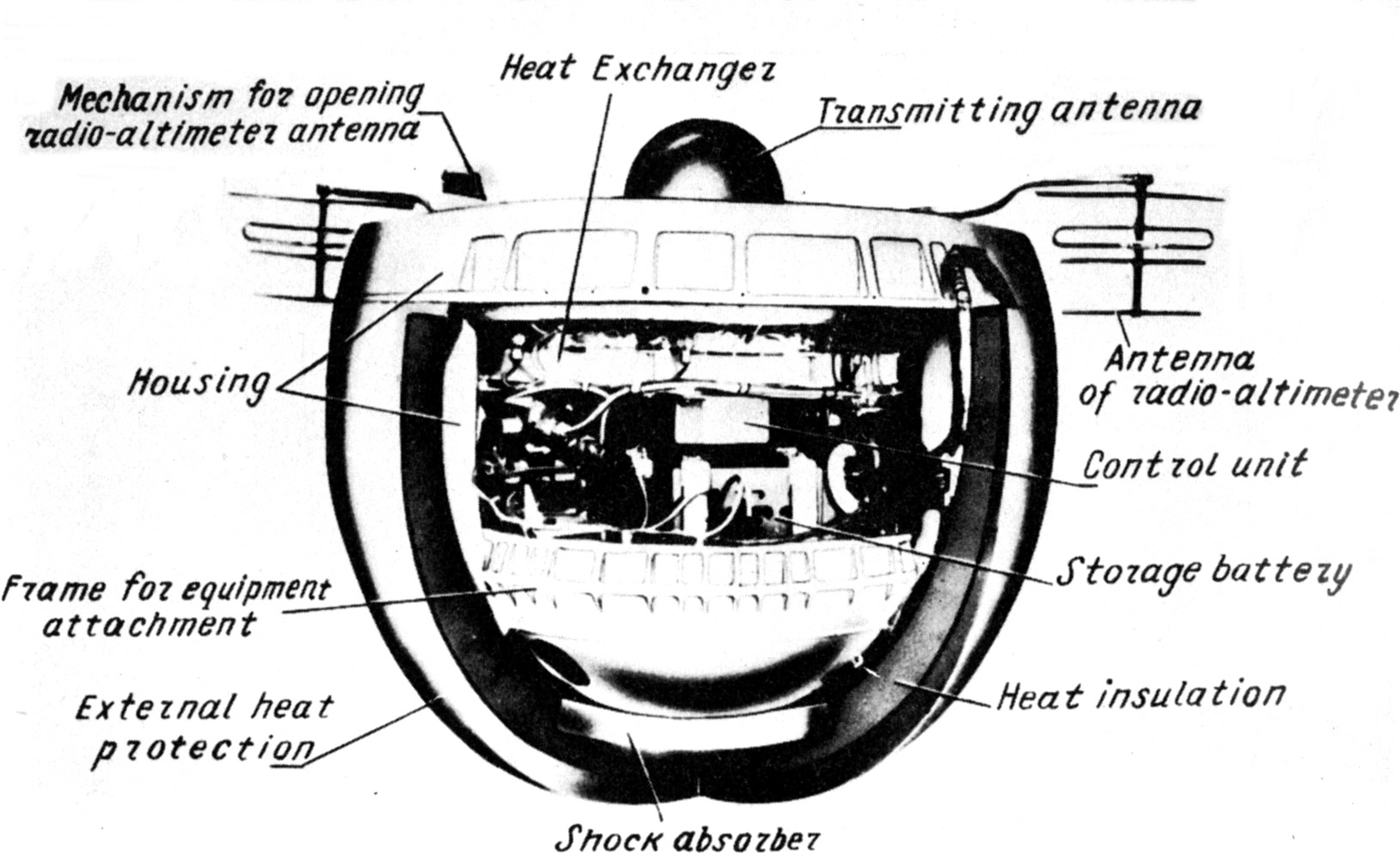
The Venera spacecraft and lander capsule
Anyway, at the very least, we can probably hope to get some clarity on what goes on in the Venusian air. It may have to wait until next time before we learn just what's happening on the ground, however.
To Hell
I bitched last month about the lousy issue of The Magazine of Fantasy and Science Fiction. Well, I am happy to say that the May issue is more than redeemed by this June 1969 issue, which, if not stellar throughout, has sufficient high points to impress and delight.
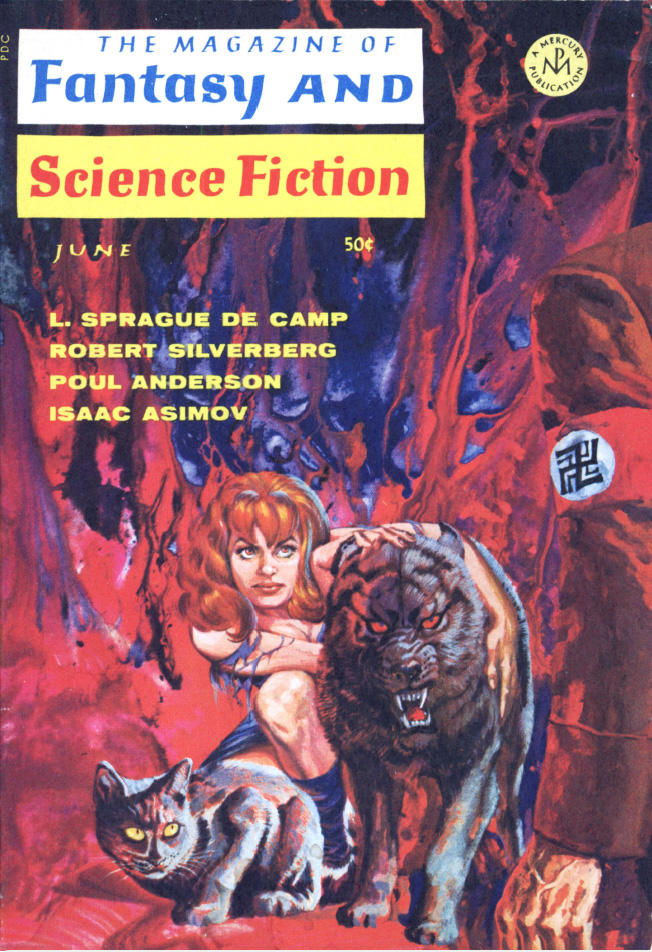
by Gray Morrow
Sundance, Robert Silverberg
Silverbob has a knack for poetic, evocative writing as well as rich settings. He has successfully made the transition from '50s hack SF author to New Wave vanguard. Which is why this rather forgettable tale is all the more disappointing.
It's about a Sioux spaceman named Tom Two Ribbons who is part of a terraforming contingent on a virgin planet. Except what his compatriots call terraforming, he calls genocide, for the millions of indigenous Eaters that they are clearing out to make room for farms are, he claims, intelligent. To prove his point, he goes out among the aliens, dancing their way and his way, hoping to avert catastrophe.
But is any of it real? Or is it all a figment of his traumatized mind?
I just found it all a bit hollow and affected, and also confusing. Not bad, but nowhere near Silverbob's best.
Three stars.
Pull Devil, Pull Baker!, Michael Harrison
A Jewish dentist finds himself implacably hostile to an Aryan patient, and, to his dismay, finds himself wanting to cause him pain in the examination chair. Turns out the two have a history that goes back centuries to another life, when the drill was in the other hand, so to speak.
So unfolds an age-crossing riddle, at the end of which lies a treasure of untold riches, if only it can be deciphered.
I dug this one. Maybe I'm biased. Four stars.
The Landlocked Indian Ocean, L. Sprague de Camp
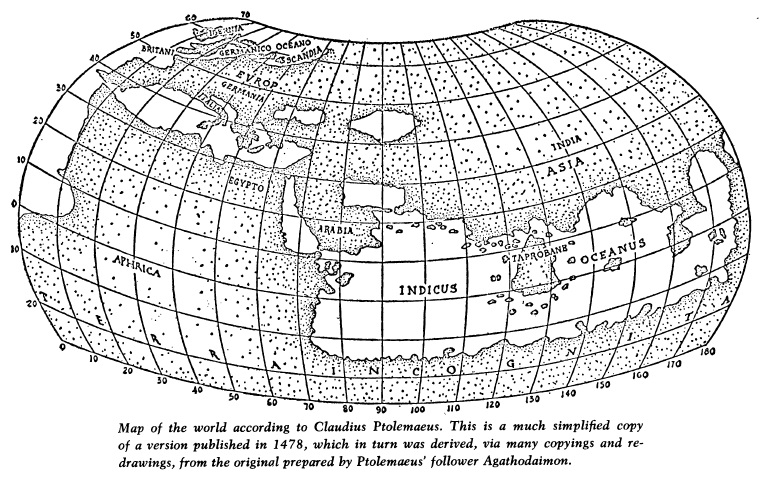
De Camp offers himself up as a sort of half-rate Willy Ley, explaining why, for so long, the Indian Ocean was conceived of as a big lake rather than part of the world sea. There's a lot of good information here, but it's not quite as compellingly presented as it could be.
Three stars.
A Short and Happy Life, Joanna Russ
Here's a great little prose-poem on ingenuity involving a barometer. Good stuff. Four stars.
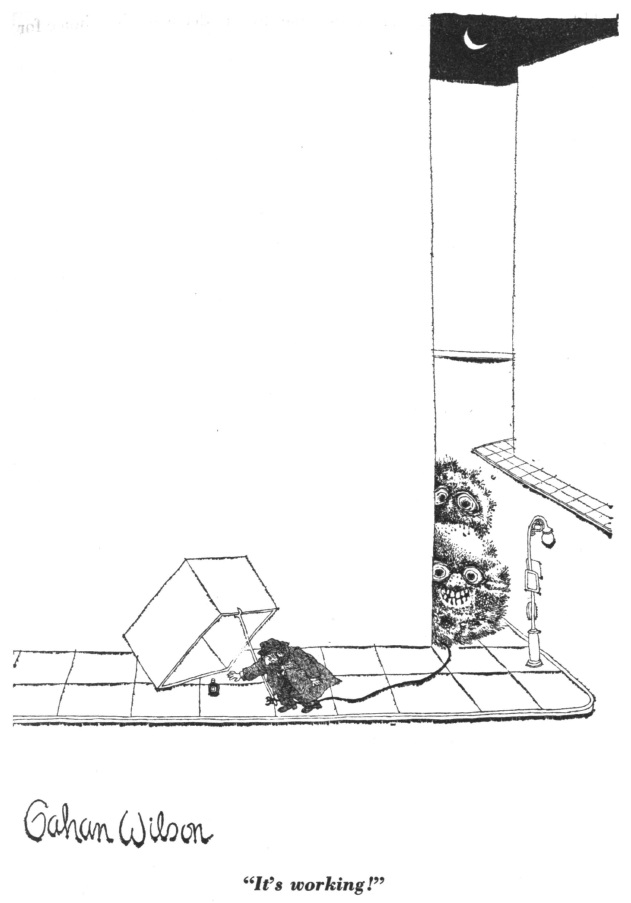
A Run of Deuces, Jack Wodhams
Aboard a superluminary cruise ship, the bored passengers come up with a betting pool to relieve their ennui: the winner of the pot is whomever guesses at what distance from their destination the ship will pop out of hyperspace.
A lot of sex. A lot of languour. A predictable ending. A low three (or a high two, if you're not in a good mood).
Operation Changeling (Part 2 of 2), Poul Anderson
Last month, we were (re-)introduced to the Matuchek family: Steve the werewolf, Virginia the combat wizard, Valeria the moppet, and Svartalf the familiar. When Valeria was kidnapped by the agents of Hell, it was only a matter of time before her parents (and their cat!) would have to penetrate the perverse underworld to retrieve her.
Enlisting the aid of a pair of dead mathematical geniuses, in this installment, the trio warps into the infernal dimension, where they must face off against hordes of demons, baffling spatial topography, and the most evil of beings humanity has ever known.
There is good Anderson, there is boring Anderson, and there is middlin' Anderson. This story is firmly in the "good" camp, with vivid descriptions, engaging (and often funny) characters, and the sort of light, fantastic adventure we haven't seen from Anderson since Three Hearts and Three Lions. Poul does somber, dour, very well, so I think it's more work for him to keep things light—even as our heroes are arrayed against the forces of darkness! It's never frivolous, but there's a fey quality that keeps things on the right side of horrific.
And that episode in Hell! I've never read the like. My only regret is that it's not longer, with a little more time for the Matuchek squad to come up with their novel solutions so that the reader can better follow along. Perhaps it'll get expanded into a full length book at some point. I hope so!
Four stars for this installment and the book as a whole.
The Fateful Lightning, Isaac Asimov
A boffo piece on the discovery of electricity. It's good, although I found the explanation of how lightning rods actually work somewhat incomplete.
Four stars.
Repeat Business, Jon Lucas
A mom-and-pop boat charter take on a quartet of "travel agents" who are obviously (to the reader, at least) a bunch of aliens. The E-Ts are sussing out the charterers and their sailing vessel to see if they might be a hit back home on Sirius or Spica or wherever they're from.
It's not a badly written tale, but it's so obvious, and the protagonists so clueless, that it feels sub-par. Maybe this would have passed muster a couple of decades ago. Now it's old hat.
Two stars.
Back to Earth
And there you have it: big news in the skies and in the SFnal pages of F&SF. There's really no unpleasant reading at all in this month's mag, even if it isn't all novel or cutting edge, and the Anderson really ends with a bang—or a flash of brimstone, perhaps. Combined with the exciting space news, and the recent launch of Apollo 10 (article to come!) I am really feeling over the Moon.
If you read this month's issue, and watch the ongoing Apollo coverage, I'm sure you will be, too!
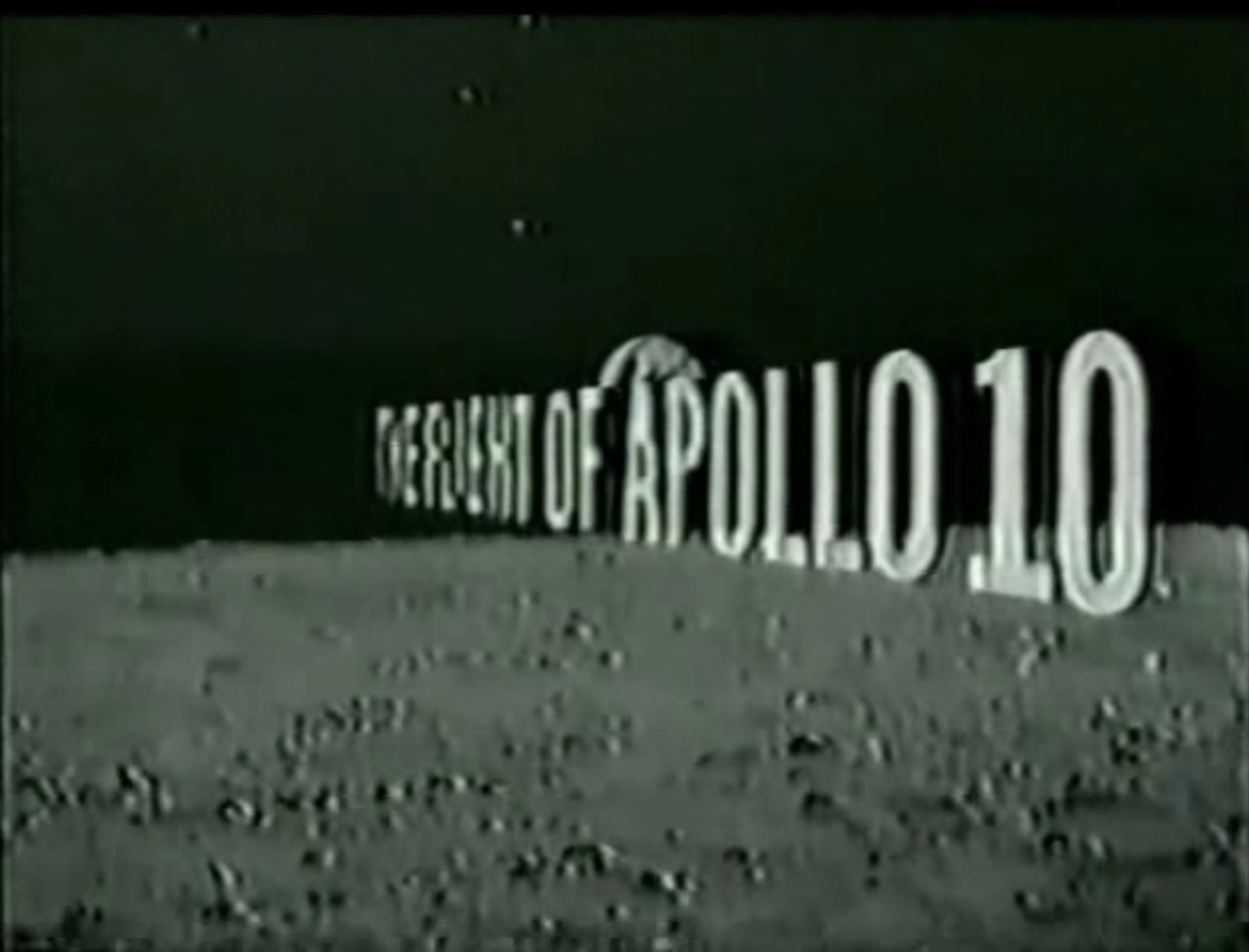

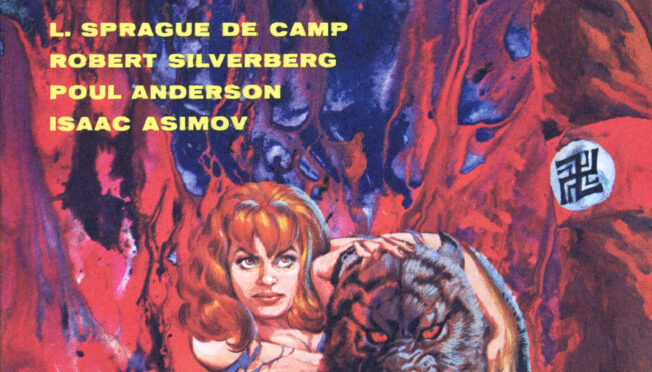


My major disagreement is with "Sundance." I thought it was excellent. The use of shifting points of view worked well, in my opinion.
Like David, I thought it was reasonably well written, but I didn't dig the point.
Right with you on "Sundance." If Silverberg had known what he really wanted to say, it might have been better. But it really felt like he had this idea–which he told well–but wasn't sure what to do with it, so the thing meanders around and changes direction. I'm not so sure about the pronoun shifting, though. That felt like doing something unconventional and calling it art.
"Pull Devil" is only a three for me. Maybe it was the past life subject matter, maybe it was what felt like a lack of focus. Not a bad story, by any means, just not outstanding.
I enjoyed de Camp's article a little more than you did. I found it more engaging than a lot of Ley's stuff. It was surprising that Sprague left out the Phoenician circumnavigation of Africa by one of the last Egyptian pharaohs as related by Herodotus. It seems relevant to his theme.
Russ's poem was fine, though poetry and I don't get along all that well. It appears to be based on a story told about Nils Bohr, which may or may not be apocryphal.
I must not have been in a good mood when I read the Wodhams. Long voyages can be dull, but I have a hard time believing they can be that dull. Though passengers on longer sea voyages would sometimes get a pool going on the trip time.
I enjoyed "Operation Changeling," and it's probably worth a four, but not a very high four. Parts of it felt a little hurried, and my lack of familiarity with the previous stories and their world might have hampered my full enjoyment. A longer version might clear that up.
Asimov's article was fine. Probably not a four for me, though.
"Repeat Business" was definitely obvious and old hat. A more experienced writer might still have been able to do better with it. From the editor's comment, he does know the charter boat business from the inside. Makes you wonder what inspired him to write this story.
I'd forgotten about the Phoenician circumnavigation! That would, indeed, have been good to add. I enjoyed Herodotus a lot in my college days.
Did I catch a Tom Lehrer reference near the end of Operation Changeling – "he published first!"? Cool story even if I'm wrong.
I caught that, too. But since all I know about Lobachevsky, I learned from Tom Lehrer, it's possible that the joke came first…
~Gideon
Cover is by Gray Morrow, not by Leo Summers, by the way.
As for Silverberg's 'Sundance,' I don't think as Demetrios X does that if 'Silverberg had known what he really wanted to say, it might have been better … it really felt like he had this idea … but wasn't sure what to do with it.'
I think Silverberg knew exactly what he wanted to do with it, which was a character study of an alienated, schizophrenic protagonist that in turn would allow him to do a little tour de force of shifting viewpoints and rhetorical tones.
There's no more point to it than that. If one is satisfied by that, it's arguably a very good story. If one isn't and feels there has to be more happening conceptually , one feels as Gideon feels: 'I just found it all a bit hollow and affected.'
I find myself somewhat in the middle. Yes, it's fine. Still, SF is a literature of ideas or it's nothing — and where are the ideas in this story?
Thanks for your thoughts, Mark! And I've issued a stop press with the emended artist's credit.
~Gideon